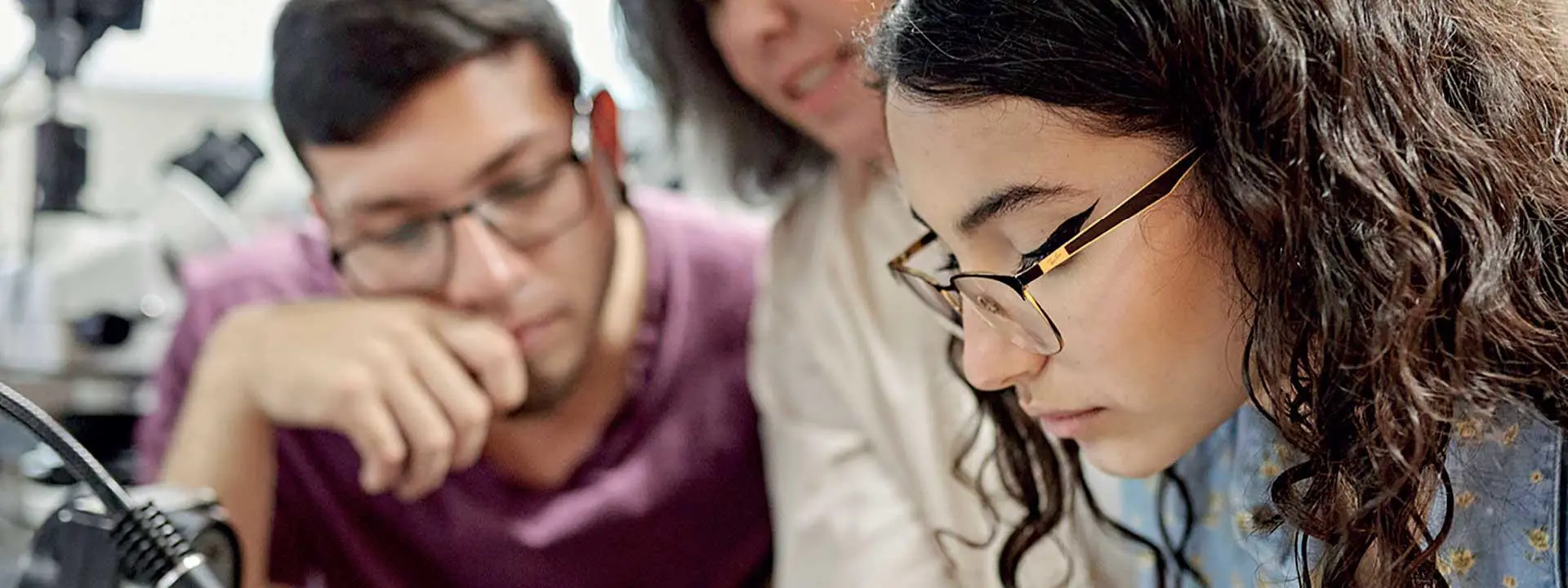Enriching Lives, an interview with Stephanie Brown

Stephanie Brown, President North America at Santhera, has just founded two scholarships to help female students studying STEM and business subjects at Heriot-Watt. We sat down to learn more about her journey.

Can you tell us a bit about yourself?
I’m President of North America for an emerging biotech company headquartered in Switzerland. We’re working on launching medicines for rare diseases around the world.
I’m Canadian by birth and got my undergraduate degree in chemistry at a small university in Canada. When I graduated, I was fortunate enough to be hired by Johnson & Johnson. I loved the mix of science and business, so it was a perfect match for me.
You have an MBA from Heriot-Watt. Did you get that after working at Johnson & Johnson for a while?
Yes, I’d moved from J&J to Merck and progressed for fifteen or so years, moving around Canada until they sent me to the USA. I remember researching the top distance-learning schools for MBAs and Heriot-Watt was on the list, and that, along with my Scottish heritage, cinched the deal. It took me several years because I was working very hard and being promoted at work, but I methodically attacked it and, in 2006, I graduated. My sister came with me to Edinburgh and watched me walk across the stage. It was a really proud moment!
How would you say your MBA from Heriot-Watt has helped you reach where you are today?
Nowadays companies look for candidates who can demonstrate a love of continual learning; certainly, when I’m hiring people, it helps if I see that they’ve got an undergraduate degree and an advanced degree. To be competitive, you need to demonstrate that capacity for advanced learning, and so my MBA helped me tremendously.
Because I did my MBA after I had been in the workforce, I understood going in how an organisation works – the pros, the cons, the challenges, the opportunities. Having that practical experience really brought the theoretical side to life. When I see candidates now who earned an MBA after working, I know they’ve been able to take what they learned and apply it.
Please tell us a bit about the scholarships you’ve chosen to fund here at Heriot-Watt University.
I’m so excited! My mother was a teacher; she taught elementary school all her life and loved it. She worked so hard for her students and had a deep love for teaching. So, when I was thinking of what I could do to give back and to keep the legacy of my mum going, I landed on these two scholarships – one for the MBA programme in Malaysia and one to support female learning in STEM in the UK.
Why in 2024 do you think it’s important to support women in STEM? Can you talk about the gender divide in your own field?
I entered Mount Allison University in Canada as an undergraduate to study English as a major and biology as a minor. I had fallen in love with sciences in high school but, back then, believe it or not, girls didn’t go into the sciences. When I switched to chemistry, I was the only female in a lot of my classes. This experience gave me a passion for supporting women in STEM.
Now, having said that, over the years the gender divide has improved tremendously: we see women becoming scientists and there are many senior-level females leading drug development in my field. So will we have to focus on this forever? I don’t think so. But when I was working my way up in the pharma industry, I was often the only female there, even in junior-level positions. Things have improved, but there’s still a need to support women so that they can reach higher positions.
What would you like your philanthropy to achieve at Heriot-Watt?
I think when students select a university, they’re really selecting a community: they’re choosing where they’re going to live and who they’re going to interact with and be close to in their everyday lives. My hope is that these scholarships make things easier financially for the students who receive them so that they can develop those long-lasting relationships that will enrich their lives.
Do you support any other charitable or educational causes and, if so, what do you find most rewarding about it?
Yes, I’ve established an award at my undergrad university called the Residence Award, which goes to senior-level students having difficulty with housing. It allows them to live on campus so that they can continue to get their degree. At the time I was thinking of setting up an award, the university found that students would drop out if they couldn’t afford rent, so I wanted to take that burden off. I’m very passionate about doing whatever little bit I can to help promote the idea that education is vital to get a good start in life.
Thanks Stephanie!
Learn more about Heriot-Watt's campaign for global impact, Shaping Futures and empowering education through scholarships like Stephanie's here.
This piece originally appeared in the HW Donor Impact Report 2023/2024. To get your copy, contact Stewardship Officer, Frederick Johnson - f.johnson@hw.ac.uk.